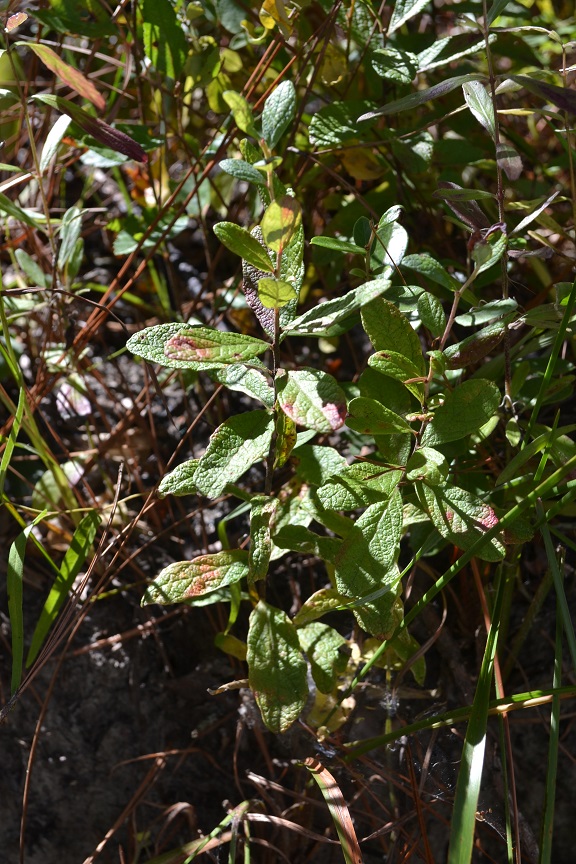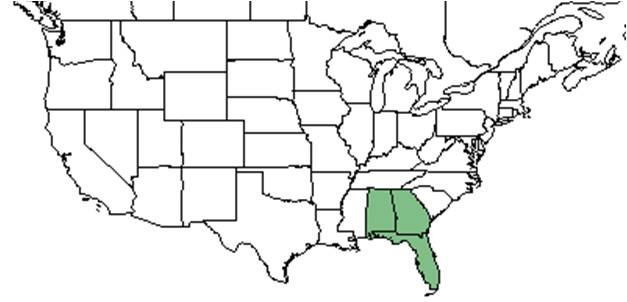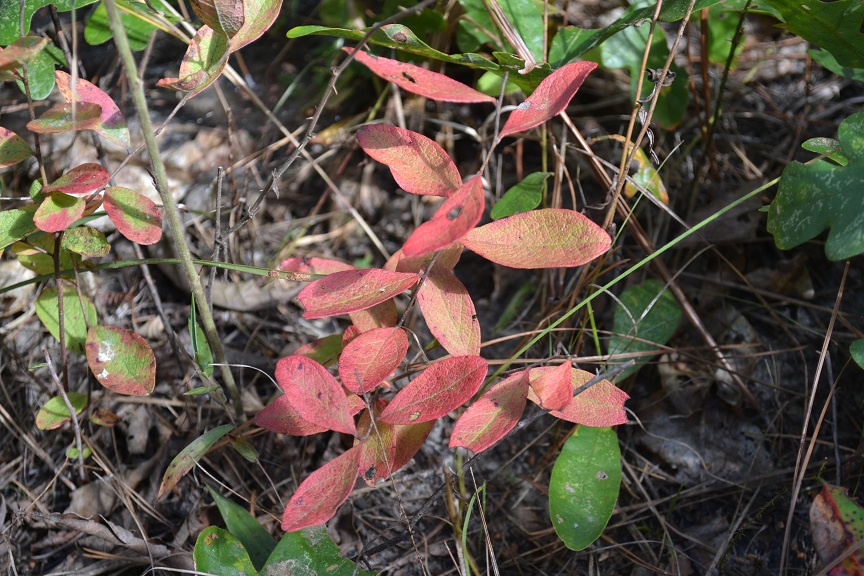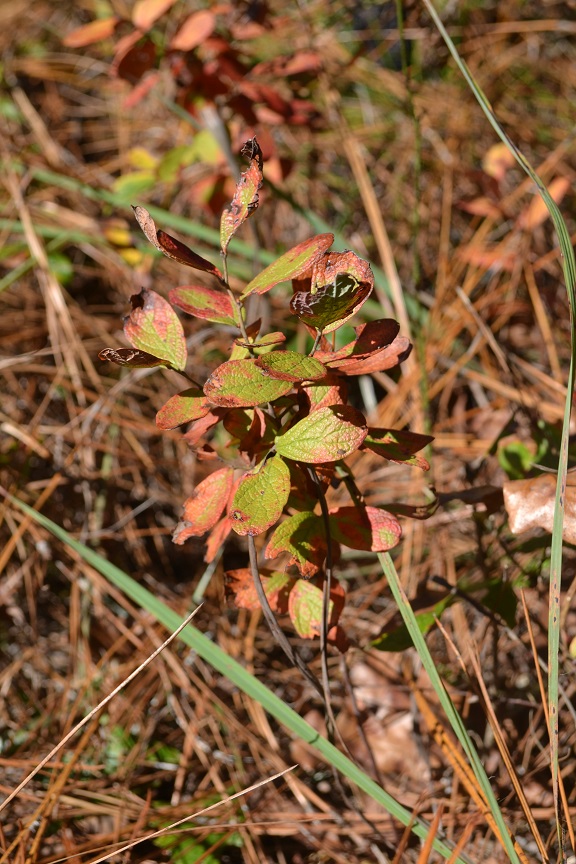Difference between revisions of "Gaylussacia nana"
(→Distribution) |
(→Conservation and management) |
||
| Line 41: | Line 41: | ||
==Conservation and management== | ==Conservation and management== | ||
| + | On the global scale, ''G. nana'' is listed as a G4 status due to its restricted distribution. It is also considered imperiled in Mississippi and critically imperiled in North Carolina.<ref>[[http://explorer.natureserve.org]] NatureServe Explorer. Accessed: May 17, 2019</ref> | ||
==Cultivation and restoration== | ==Cultivation and restoration== | ||
Revision as of 13:21, 17 May 2019
Common name: Confederate huckleberry
| Gaylussacia nana | |
|---|---|

| |
| Photo taken by Kevin Robertson | |
| Scientific classification | |
| Kingdom: | Plantae |
| Division: | Magnoliophyta - Flowering plants |
| Class: | Magnoliopsida - Dicotyledons |
| Order: | Ericales |
| Family: | Ericaceae |
| Genus: | Gaylussacia |
| Species: | G. nana |
| Binomial name | |
| Gaylussacia nana (A. Gray) Small | |

| |
| Natural range of Gaylussacia nana from USDA NRCS Plants Database. | |
Contents
Taxonomic notes
Synonyms: Gaylussacia frondosa (Linnaeus) Torrey & A. Gray ex Torrey var. nana A. Gray; Decachaena nana (A. Gray) Small; G. frondosa (Linnaeus) Torrey & A. Gray ex Torrey var. tomentosa A. Gray
Description
Gaylussacia nana, also known as confederate huckleberry, is a perennial shrub that is a member of the Ericaceae family.[1]
Distribution
This species is generally restricted to the states of Florida, Georgia, and Alabama in the southeastern United States.[1] It is more specifically distributed within the southeast coastal plain from southeast South Carolina south to northern and central peninsular Florida, the Florida panhandle, west to eastern Louisiana, and disjunct in southeastern North Carolina.[2]
Ecology
Habitat
This species is commonly found in xeric sandhills in its native distribution.[2]
Phenology
G. nana has been observed to flower from March to May with peak inflorescence in April.[3]
Conservation and management
On the global scale, G. nana is listed as a G4 status due to its restricted distribution. It is also considered imperiled in Mississippi and critically imperiled in North Carolina.[4]
Cultivation and restoration
Photo Gallery
References and notes
- ↑ 1.0 1.1 USDA, NRCS. (2016). The PLANTS Database (http://plants.usda.gov, 17 May 2019). National Plant Data Team, Greensboro, NC 27401-4901 USA.
- ↑ 2.0 2.1 Weakley, A. S. (2015). Flora of the Southern and Mid-Atlantic States. Chapel Hill, NC, University of North Carolina Herbarium.
- ↑ Nelson, G. PanFlora: Plant data for the eastern United States with emphasis on the Southeastern Coastal Plains, Florida, and the Florida Panhandle. www.gilnelson.com/PanFlora/ Accessed: 9 DEC 2016
- ↑ [[1]] NatureServe Explorer. Accessed: May 17, 2019

